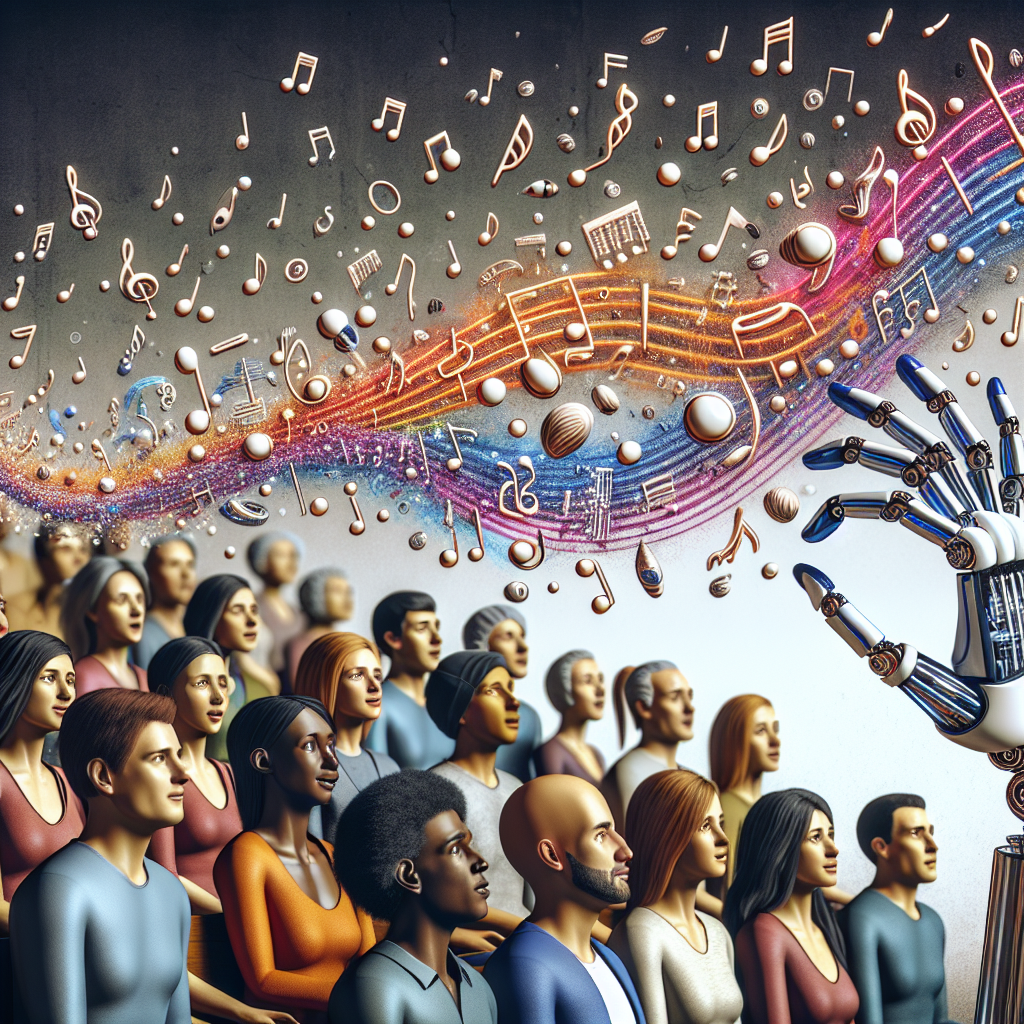Artificial Intelligence (AI) has become an increasingly prevalent force in our modern world, impacting various aspects of our lives. One area where AI has made a significant impact is in the realm of music. AI-driven music is a rapidly growing field that is changing the way we create, consume, and interact with music. In this article, we will explore the cultural impact of AI-driven music and how it is reshaping the music industry.
AI-driven music is a broad term that encompasses various applications of artificial intelligence in the creation, production, and distribution of music. One of the most common uses of AI in music is in the creation of music compositions. AI algorithms are capable of analyzing vast amounts of musical data and patterns, and using this information to generate original compositions. These compositions can range from simple melodies to complex symphonies, and can be tailored to fit a specific style or genre.
One of the most well-known examples of AI-generated music is the work of the AI music composer AIVA (Artificial Intelligence Virtual Artist). AIVA has been trained on a vast dataset of classical music compositions and is capable of creating original pieces that sound remarkably human-like. AIVA has gained recognition in the music industry and has even released albums of its compositions.
Another use of AI in music is in the production and mixing process. AI algorithms can analyze audio tracks and automatically adjust levels, EQ, and other parameters to create a polished and professional sound. This can save musicians and producers a significant amount of time and effort in the studio, allowing them to focus more on the creative aspects of music production.
AI-driven music is also changing the way we interact with and consume music. Streaming services like Spotify and Apple Music use AI algorithms to recommend music to users based on their listening habits and preferences. These algorithms analyze data such as listening history, likes, and dislikes, to create personalized playlists and recommendations for each user. This has revolutionized the way we discover new music and has made it easier than ever to find music that we love.
The cultural impact of AI-driven music is significant and multifaceted. On one hand, AI is democratizing the music creation process, allowing anyone with access to the technology to create professional-quality music. This has opened up new opportunities for aspiring musicians and artists who may not have had the resources or training to create music in the past.
AI-driven music is also blurring the lines between human and machine creativity. As AI algorithms become more sophisticated and capable of creating music that is indistinguishable from human compositions, questions arise about the nature of creativity and the role of AI in the artistic process. Some argue that AI-driven music lacks the emotional depth and authenticity of human-created music, while others see AI as a tool that can enhance and complement human creativity.
The rise of AI-driven music has also raised concerns about the impact on traditional music industries and job displacement. As AI technology becomes more advanced and capable of creating high-quality music, there is a fear that musicians, producers, and other music industry professionals may be replaced by AI algorithms. However, proponents of AI-driven music argue that AI can be used as a tool to augment human creativity and enhance the music-making process, rather than replace it.
In conclusion, AI-driven music is a rapidly evolving field that is reshaping the music industry in profound ways. From the creation of original compositions to personalized music recommendations, AI is changing the way we create, consume, and interact with music. The cultural impact of AI-driven music is complex and multifaceted, with both opportunities and challenges. As AI technology continues to advance, it will be interesting to see how it continues to shape the future of music and the creative process.
FAQs:
Q: Can AI create music that is as good as human-created music?
A: AI algorithms are becoming increasingly sophisticated and capable of creating music that is indistinguishable from human compositions. While some argue that AI lacks the emotional depth and authenticity of human-created music, others see AI as a tool that can enhance and complement human creativity.
Q: Will AI replace musicians and other music industry professionals?
A: There is a fear that AI technology may lead to job displacement in the music industry, as AI algorithms become more advanced and capable of creating high-quality music. However, proponents of AI-driven music argue that AI can be used as a tool to augment human creativity and enhance the music-making process, rather than replace it.
Q: How is AI used in the music production process?
A: AI algorithms can analyze audio tracks and automatically adjust levels, EQ, and other parameters to create a polished and professional sound. This can save musicians and producers a significant amount of time and effort in the studio, allowing them to focus more on the creative aspects of music production.
Q: How is AI used in music streaming services?
A: Streaming services like Spotify and Apple Music use AI algorithms to recommend music to users based on their listening habits and preferences. These algorithms analyze data such as listening history, likes, and dislikes, to create personalized playlists and recommendations for each user.

